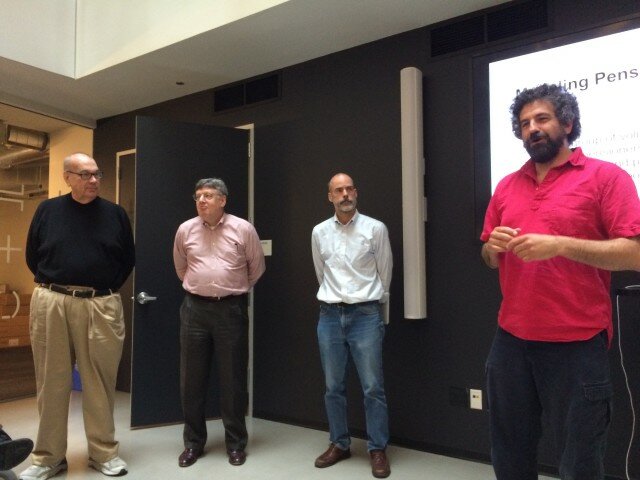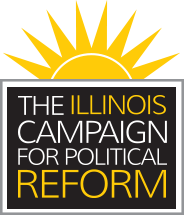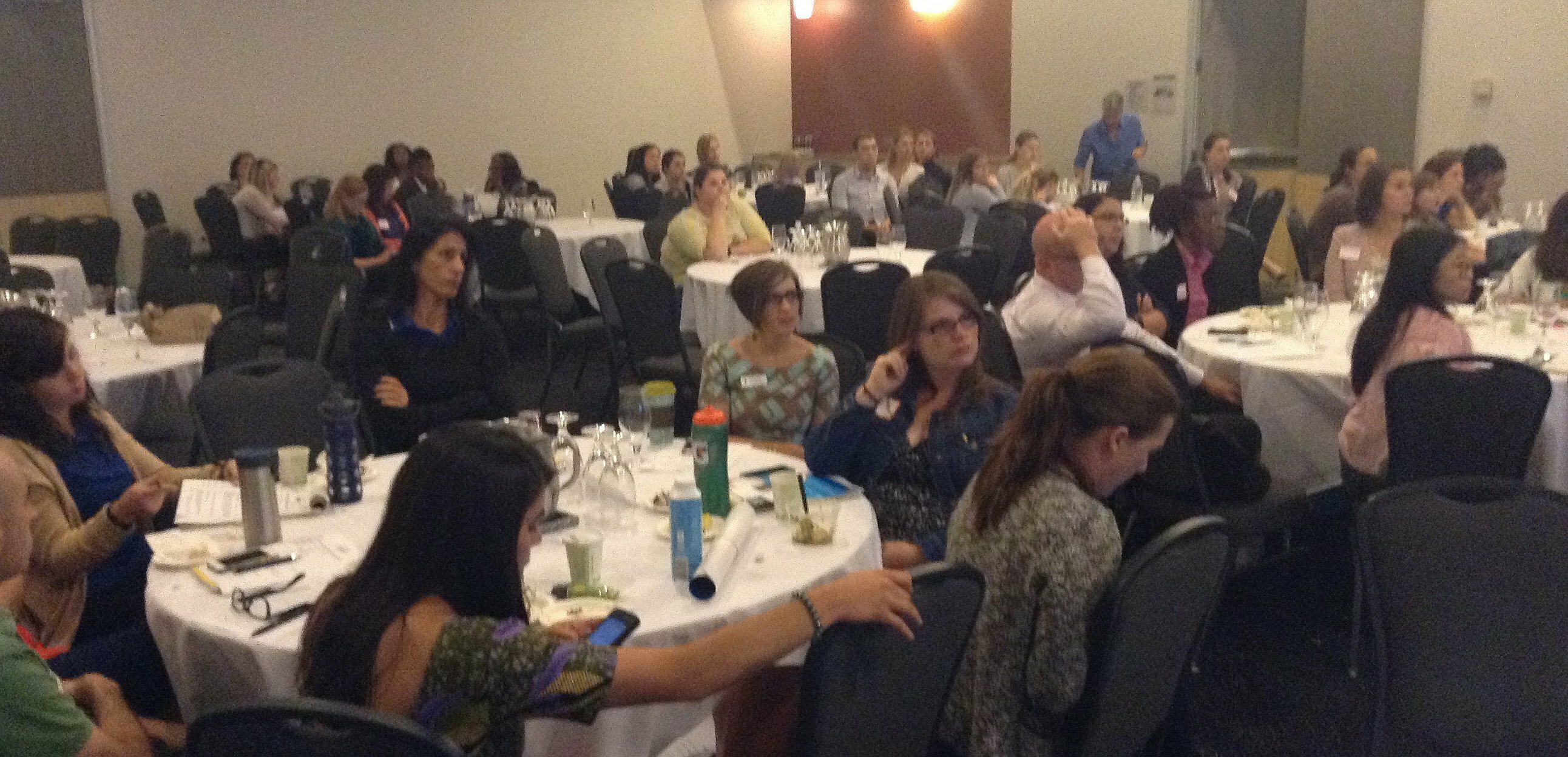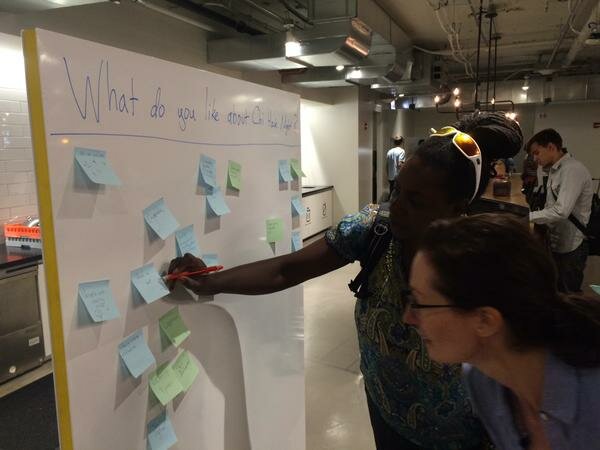 At Chi Hack Night, the Modeling Pension Reform Breakout Group shared their work so far and helped to explain the problem with pensions in Illinois.
At Chi Hack Night, the Modeling Pension Reform Breakout Group shared their work so far and helped to explain the problem with pensions in Illinois.
The breakout group, led by Ben Galewsky, David Melton, Nathan Pinger, Denis Roarty and Tim Sharko, is comprised of volunteers trying to educate public employees, pensioners, tax payers and policy makers about the math behind pension systems, the current debt, and possible solutions. The group was formed at Chicago’s OpenGov Hack Night as one of the working groups and have been meeting regularly for the past six months.
Here’s the group’s slides and highlight video:
Below, we’ve laid out some key points from the team’s presentation:
The problem with pensions
In the private sector, most companies switched from offering pensions to a 401(k) defined contribution. However, in the public sector the majority of government employees still have a pension. The main difference between a pension and a 401(k) is that with a pension you’re guaranteed a certain monthly income per month and it places the investment risk on the plan provider. With a 401(k) there’s no such guarantee and the employee assumed the investment risk. While pensions are an employee benefit, state workers also pay into the system.
According to the team, the State of Illinois has $111 billion of unfunded liabilities for the five Illinois pension systems: General Assembly Retirement System, Judges Retirement System, State Employee Retirement System, State Universities Retirement System, and the Teachers Retirement System.
The team stated that in order make up for the shortfall, each Illinois family would have to pay a levy of at least $ 23,000 or a loss of at least $146,000 in retirement savings for every employee and retiree in these five pension plans.
The problem in Illinois became even more difficult in 1970 when the Illinois Constitution was modified to ban Illinois from reducing pension benefits once they’ve been hired by the State. Illinois recently went to a two-tier system to reduce benefits for future employees – but was constitutionally bound to keep things the same for current employees.
The teams stressed that what got the state in trouble wasn’t the stock market tanking or government employees getting raises. It’s that the state skipped their required payments and it compounded the problem. The state has a fixed cost of living allowance (COLA) increase of 3% – and right now that’s compounding at or above inflation. An added complication is that in the Teachers Retirement System, the school districts can set the amount of benefits – but they don’t aren’t responsible for paying the bill.
And the last thing the team says that makes solving pensions difficult is that taxpayers tend to fall asleep when it gets to the nitty-gritty details of pension reform.
Building an understanding of the math
To help residents better understand the pension problem, the team has been building two calculations that model the effects pension reform would have.
The first is a Pension Calculator for pensioners and interested taxpayers to enter their personal information and compare current contributions and benefits to proposed scenarios. The second is a Liability Calculator for taxpayers and policy makers to explore what the state-wide liability looks like under various scenarios. The calculator is designed to be a rough model of the pension systems given our limited access to data and actuarial resources.
The calculator let’s users see what effects different pension plans would have.
The team is still working on the calculators, but expects to launch soon.
Currently, the team is working on reverse engineering the State’s actuarial tables that they use to determine how the pensions will look in later years. They have a FOIA request for both the database and the calculations they use.
Getting involved
The team is currently looking for help in getting access to detailed plan data provided to actuaries, access to state actuaries staff and models, javascript developers, UX Designers, help with marketing the tool. They also would like to have input on what is politically and pragmatically feasible and if there are other approaches the team should consider.
You can join them by attending the Chi Hack Night Pension Breakout Group.





